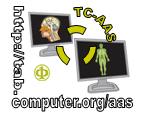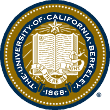Third IEEE International Conference on Self-Adaptive and Self-Organizing Systems
Location: San Francisco, California, September 14-18, 2009
Recent Updates
- Registration now open!
- Early registration period ends August 17, 2009.
Welcome

The aim of the SASO conference series is to provide a forum for laying the foundations of a new principled approach to engineering systems, networks and services based on self-adaptation and self-organization. To this end, the meeting aims to attract participants with different backgrounds, to foster cross-pollination between different research fields, and to expose and discuss innovative theories, frameworks, methodologies, tools, and applications.
The complexity of current and emerging computing systems has led the software engineering, distributed systems and management communities to look for inspiration in diverse fields (e.g., complex systems, artificial intelligence, sociology, and biology) to find new ways of designing and managing networks, systems and services. In this endeavor, self-organization and self-adaptation have emerged as two promising interrelated facets of a paradigm shift.
Self-adaptive systems work in a top down manner. They evaluate their own global behavior and change it when the evaluation indicates that they are not accomplishing what they were intended to do, or when better functionality or performance is possible. A challenge is often to identify how to change specific behaviors to achieve the desired improvement. Self-organizing systems work bottom up. They are composed of a large number of components that interact locally according to typically simple rules. The global behavior of the system emerges from these local interactions. Here, a challenge is often to predict and control the resulting global behavior.
This year's edition is specifically focused at improving our understanding of the properties inherent to self-adaptation and self-organization, a necessary requirement for the effective engineering and building of usable self-adaptive and self-organizing systems. Contributions should present novel theoretical or experimental results, or practical approaches and experiences in building or deploying real-world systems, applications, tools, frameworks, etc. Contributions contrasting different approaches for engineering a given family of systems, or demonstrating the applicability of a certain approach for different systems are particularly encouraged.
Topics
The topics of interest to SASO include, but are not limited to:
- Self-organization
- Self-adaptation
- Other self-* properties (self-management, self-monitoring, self-tuning, self-repair, self-configuration, etc.)
- Theories, frameworks and methods for self-* systems
- Management and control of self-* systems
- Robustness and dependability of self-* systems
- Approaches to engineering self-* systems
- Control of emergent properties in self-* systems
- Biologically, socially, and physically inspired self-* systems
- Applications and experiences with self-* systems







